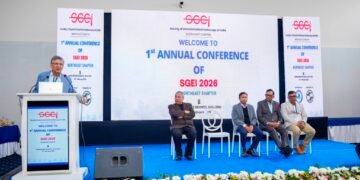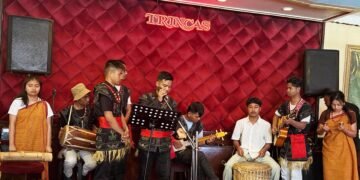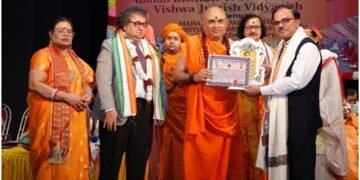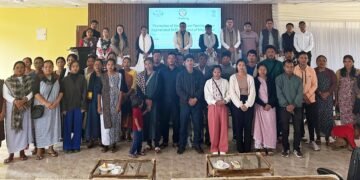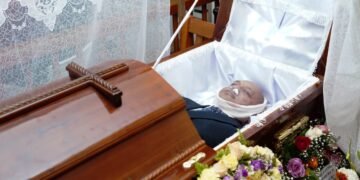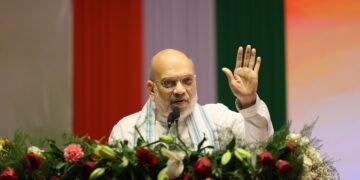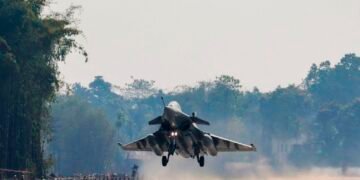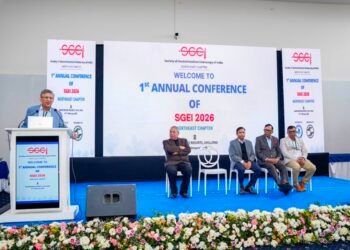A delegation of the 16-member Knight’s Association Kumpanjija – Blato from Croatia visited North-Eastern Hill University (NEHU) on Monday morning with the objective of exchanging knowledge and ideas with the faculty and students at NEHU.
The purpose of the visit was to raise awareness of the folklore festivals and cultural heritage of Blato, the island of Korčula, and the Republic of Croatia, which is known for its nature, culture, history, and cuisine, located at the meeting point of central and southeast Europe.
The event was organized on an auspicious day like Navaratra where the triumph of good over evil is celebrated by way of social and religious rituals emphasizing on Fasting, meditation and offering of prayers.
The Indian Council of Cultural Relations (ICCR) and ICSSR-NER, NEHU, took the initiative. Prof. PS Shukla, Vice-chancellor of NEHU, presided over the programme and congratulated the foreign delegates who came to NEHU on a state visit to showcase their artistic marvel, the Kumpanjija sword dance, a traditional ritual dance that embodies the warrior spirit of the people who defended the island against invaders from the mediaeval and modern eras.
The sword is a representation of strength, courage, power, protection, authority, and, in a metaphysical sense, discrimination and the piercing force of the mind. It represents chivalry and knighthood. Earlier during the day Prof B Panda, Honorary Director, ICSSR-NER and N Munish Singh, Zonal Director, ICCR, North East gave welcome and introductory speeches on the occasion.
In his speech, Nicola, the Leader of the Knight’s Association Kumpanjija-Blato from Croatia expressed his pleasure at NEHU’s hospitality and the level of discussion with an open invite to NEHU faculties and students to visit Croatia in the future.
He talked about his extensive knowledge of the Korčula Island Statute, which is the historical basis for this force and dates back to 1214. He informed them that Kumpanjija was an army that persisted into the 19th century before becoming part of folklore. The Sword Society was founded in 1927 by statute and preserves the chronicles of this mediaeval army.
Vice-Chancellor of NEHU and the Chairman of North-East Centre of Indian Council of Social Sciences Research, Shillong, acted as the chief guest and emphasized on the fact that irrespective of our diverse backgrounds, we are part of a single global family by quoting the G20 punch line – One Earth, One Family, One Future.
He endorsed harmony and urged the students to look past differences in geography and culture. He also discussed Sawlakin, a well-known battle folk dance from Mizoram, and Shad Suk Mynsiem in Meghalaya, two historic weapon dances of the North East.
The ceremonial sword dance, known as Kumpanjija, was performed in the open by the Croatian representatives from Blato, showcasing the soldier spirit of those who defended the island from invaders. The music for the wordless game consisted of a drum and piper, and the participants followed their captain, who led and gave commands through their movements.
A large number of academic staff and students turned out to see the Croatian artists’ historic performance.

